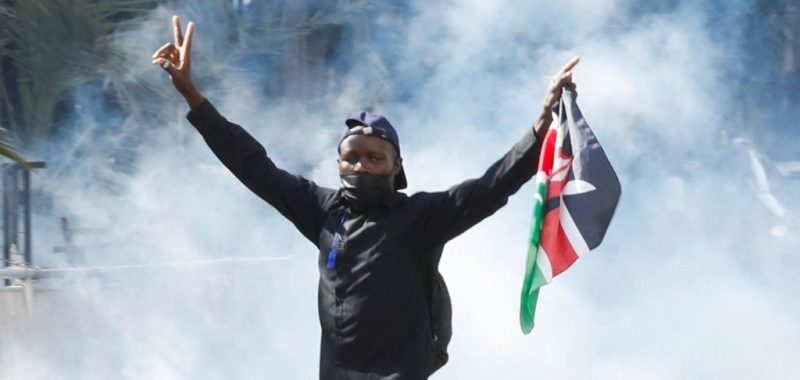By Raymond Tuvi, Media and Development Consultant
Happenings in the Kenyan streets and Parliament, as watched with horror and amazement on television screens around the world last week, indicate the extent to which deficient democratic leadership is impacting the African continent. It was a sight to behold when hundreds of irate youth poured onto the streets, besieging the House of the Kenyan Legislature, setting parts ablaze in wrath and protest against a Finance Bill introduced by President William Ruto to impose draconian taxes. These taxes included hiked percentages on daily consumables like bread and cooking oil.
The police and military, fully armed with riot gear, unleashed tear gas and live ammunition on the protestors, killing at least forty and injuring many. An astute and articulate Member of the Kenyan Parliament, in a long and impassioned speech on the floor of the House, described the protests as the most spectacular display of patriotism and camaraderie. “They’ve looked their oppressors dead in their eye and not backed down,” the visually-impaired legislator affirmed. In the heat of the protest, five Members of Ghana’s Parliamentary Committee on Local Government, who were on official duty, got caught up in the chaos and had to be quickly whisked to safety through underground tunnels.
There were serio-comic comments across social media to the effect that, in the face of widespread oppressive legislations being imposed and pushed through the throats of citizens in several African countries, Kenyans, the offspring of the famous independence Mau Mau militant movement, had not disappointed. The repressive Finance Bill was withdrawn by the Kenyan government a few days into the deadly riots.
A President who rode on the wave of popularity into an election, identifying with the masses as “a hustler,” just like most leaders, becoming massively unpopular just under two years, is strongly instructive and worrisome. After misunderstandings and bad blood between him and his boss, then President Uhuru Kenyatta, who was seen as an elitist offspring carrying on the hegemonic legacy of his independence leader father, Jomo Kenyatta, Ruto came into the presidency in September 2022 as a breath of fresh air and a hope for the poorest and most disadvantaged Kenyans. The former Kenyan Vice-President was hailed across the continent and profiled on some media platforms as one of the new generation of young and bright African leaders, with a credible character to salvage African economies from the current exploitative world economic order and improve the lot and dignity of Africans across the continent. Coming into office in the last couple of years with immediate measures to crack down on corruption, he and some leaders emerging in the more politically stable east and southern regions of Africa, including Presidents Lazarus Chakwera of Malawi and Zambia’s Hakainde Hichilema, led the way.
Now, we have to ask, what happened? Where is the glory and the dream? Reflections on the disturbing events across the continent, a Governance Expert, Professor Baffour Agyemang-Duah, in a rare admission, said the youth of Ghana and Africa have been failed by the current generation of leaders. How could a generation with the best grooming and training, with three square meals and desserts in their universities, waited upon by white, starched uniformed stewards, with generous spending money every month, fail in what they were trained to do? That is, to administer the institutions and nations they were specially and specifically prepared to lead, in order to lift their less-privileged countrymen and women to commensurate levels and abilities.
What happened to Osagyefo Kwame Nkrumah, the foremost Ghanaian and African leader, then declaring on the dawn of our Independence that, “Ghana, your beloved country, is free forever”? Or is it those trained to take over from him and his liberation generation, who mortgaged our financial independence as a people and African nations? Perhaps, the crux of the problem, indeed, lies in Osagyefo’s postulation and insistence to seek first the political kingdom and all other things shall be added unto us. The immutable Word of God declares in Psalm 119:89 that, “Forever, O Lord, your word is settled in Heaven.”
It is imperative for leaders and followers alike to retain and always be led by the seminal words Jesus Christ left us with in Matthew Chapter 6 verse 33, that is, “But seek ye first the kingdom of God and His righteousness; and all these things shall be added unto you.” There are lots of lessons to be learned from the Kenyan incident going forward.

